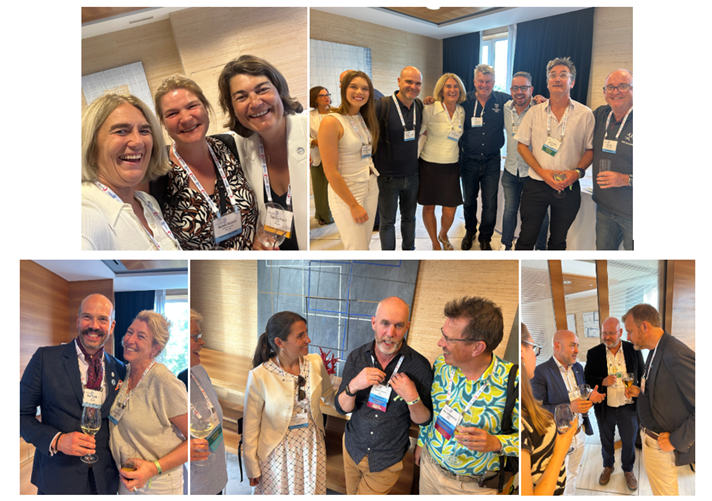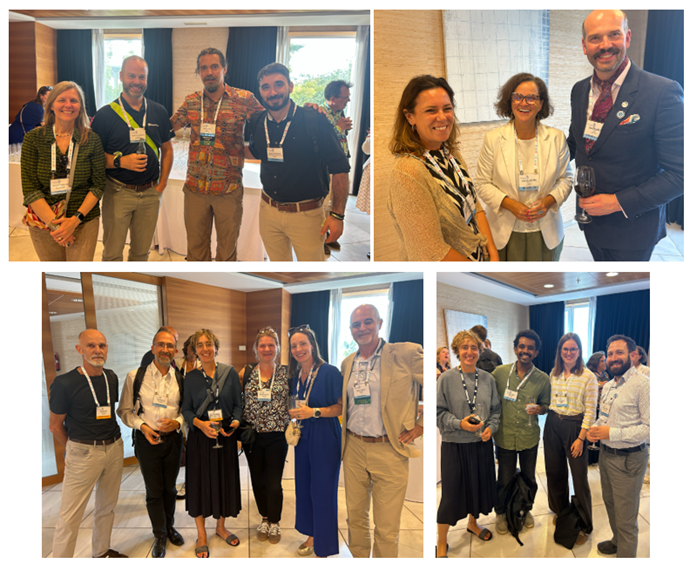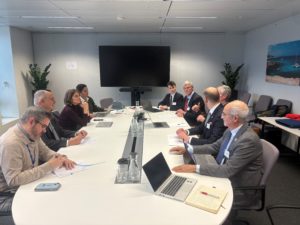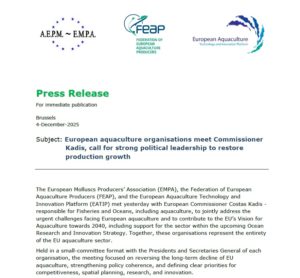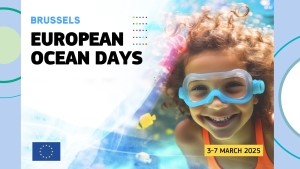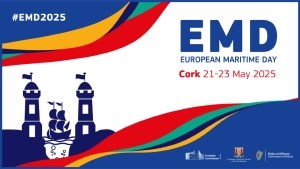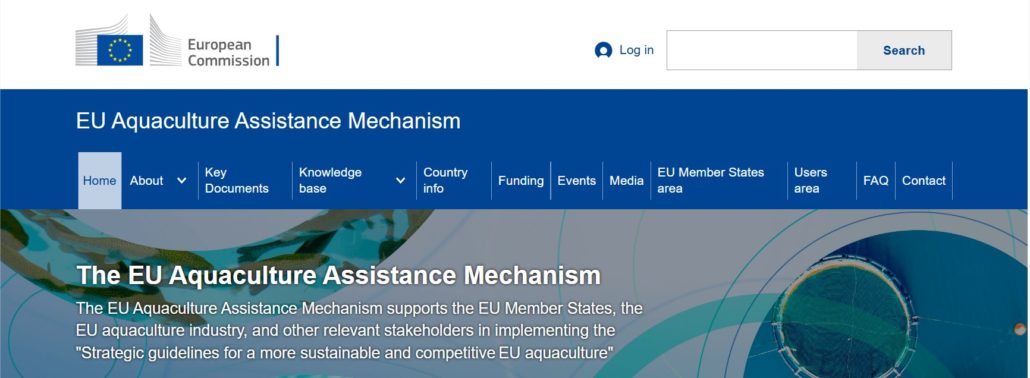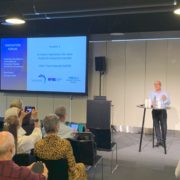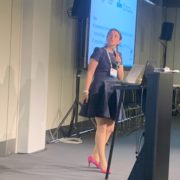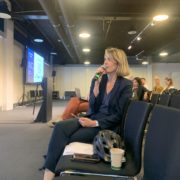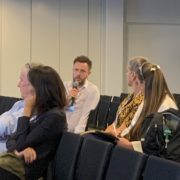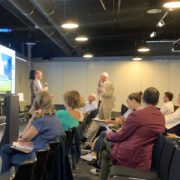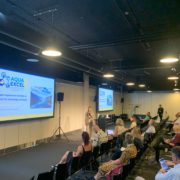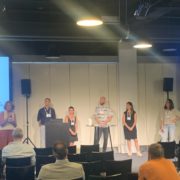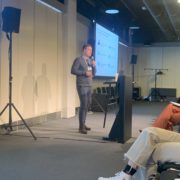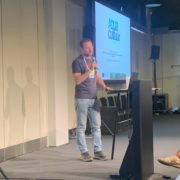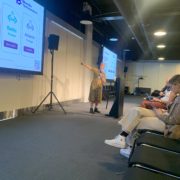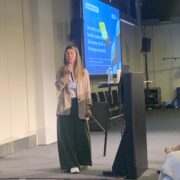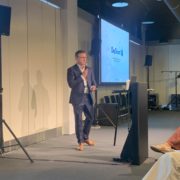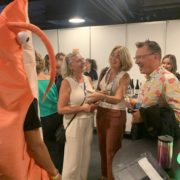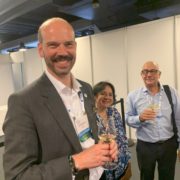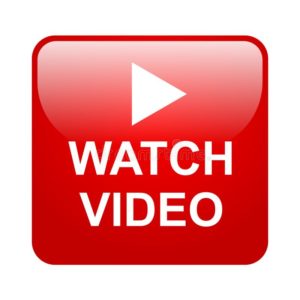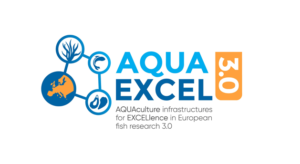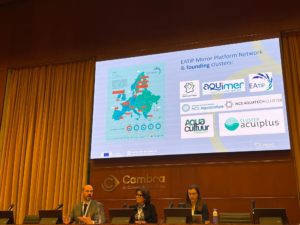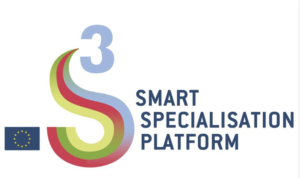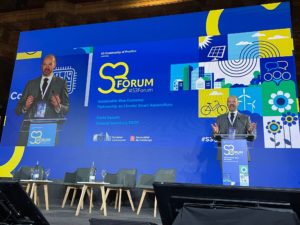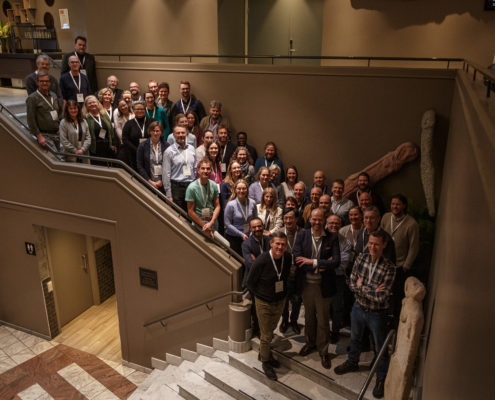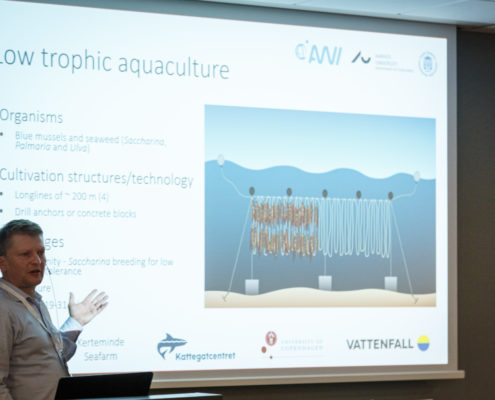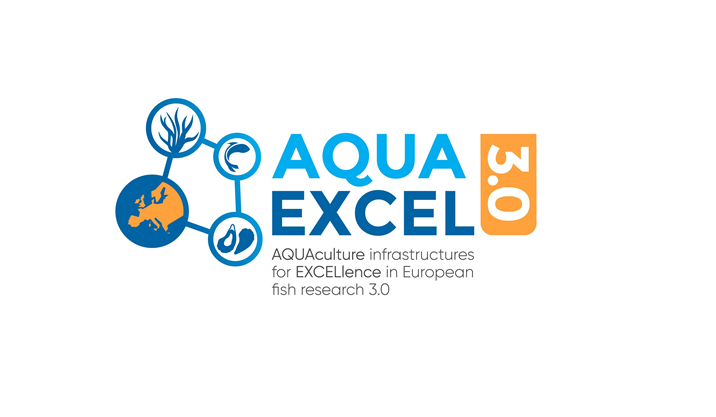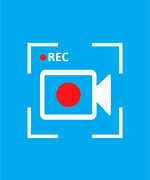Innovation Forum at Aquaculture Europe 2025
Wednesday PM, September 24, 2025 – Valencia, Spain. Gran Pinedo (Hotel Sercotel Sorolla Palace- Floor 2)
Implementing and Supporting Innovation in Aquaculture Through Knowledge Sharing
14:00 – 14:30 | Session 1: Welcome & Opening Remarks |
Moderator: David Bassett (EATiP)
Lorella de la Cruz Iglesias, European Commission, DG MARE
• EU policies, funding programmes and initiatives to support innovation in aquaculture.
Øyvind Hilmarsen, Norwegian Seafood Research Fund
• Driving Change in Aquaculture: How can we make research work in practice?
Q&A
14:30 – 15:30 | Session 2A: Knowledge Transfer fostering Aquaculture Innovation |
Moderator: Marc Vandeputte (INRAE / EAS), David Bassett (EATiP)
Julien Peris, European Commission, CINEA
• The European Maritime, Fisheries and Aquaculture Fund (EMFAF) as support for developing innovative projects.
Introducing the panel members
• Lorella de la Cruz, European Commission
• Øyvind Hilmarsen, Norwegian Seafood Research Fund
• Mery Pina, EMBRC
• Yolanda Molares, ACUIPLUS
• Sylvie Becaus, Marifish
• Damien Toner, BIM
Pitch Session: Research and Innovation Outputs with potentially high impact
THEMATIC AREA 1: MANAGING THE BIOLOGICAL LIFE CYCLE SUSTAINABLY
1. Fish Matter: A Smart Platform for Blue Bioeconomy Co-products Valorisation (João Reis, B2E Colab)
2. From Blue to Green: aquaculture sediment as a source of nutrients for the agriculture sector (Piotr Eljasik, West Pomeranian University of Technology in Szczecin)
3. Circular innovation to protect the sea (Loris Pietrelli, Sapienza University)
4. Adapting native oyster restoration to the scale of offshore energy development (Molly Hughes & Mieke Eggermont, UGent)
5. Origin significantly impacts reproductive capabilities of pikeperch (Sander lucioperca) broodstock (Oleksandr Malinovskyi, University of South Bohemia) AE3.0
15:30 – 15:45 | Coffee Break
15:45 – 17:15 | Session 2B: Knowledge Transfer fostering Aquaculture Innovation / part II |
Moderators: Lorenzo Gennari (EMPA / EATiP) and Elisa Ravagnan (NORCE / EATiP)
THEMATIC AREA 2: SUSTAINABLE FEED PRODUCTION
1. Supplementation with metal-AA complexes contribute to more efficient and sustainable diets in RAS systems (Claudia Figueiredo Silva, Zinpro) AE3.0
2. Established benchmark for Atlantic bluefin tuna (Thunnus thynnus) weaning with commercially available diets in Europe (Paul-Daniel Sindilariu, Nexttuna) AE3.0
3. Tailored microdiets for Atlantic cod lead to reduction in skeletal deformities (Luis Conceição, Sparos)
4. Novel fish feed oils (Stefan Teerlinck, Inagro)
5. Microbiome-assisted production of sustainable aquafeed compounds (Erik-Jan Malta, CTAQUA)
THEMATIC AREA 3: TECHNOLOGY & SYSTEMS
1. Use of Acoustic Doppler Current Profilers (ADCP) echosounding to characterise fish growth and behaviour? (Thomas Culverhouse, Sonardyne) AE3.0
2. New methods for post processing biotelemetry data in aquaculture (Martin Føre, NTNU) AE3.0
3. Developing digitalised analytical solutions for aquaculture: quantification of Nitrogen-based compounds (Eva Gonzalez Fernández, Biolan)
4 Advanced Health Research for Shrimp Aquaculture (Evelien De Swaef, IMAQUA)
5. Acoustic monitoring for mussel longlines (Thomas Vandorpe, VLIZ)
6. A publicly available SNP array for selective breeding in the leading Mediterranean fish species (Tsigenopoulos Constantinos, HCMR)
17:15 – 17:30 | Closing Remarks by the Organizers
17:30 – 18:00 | Networking Reception
